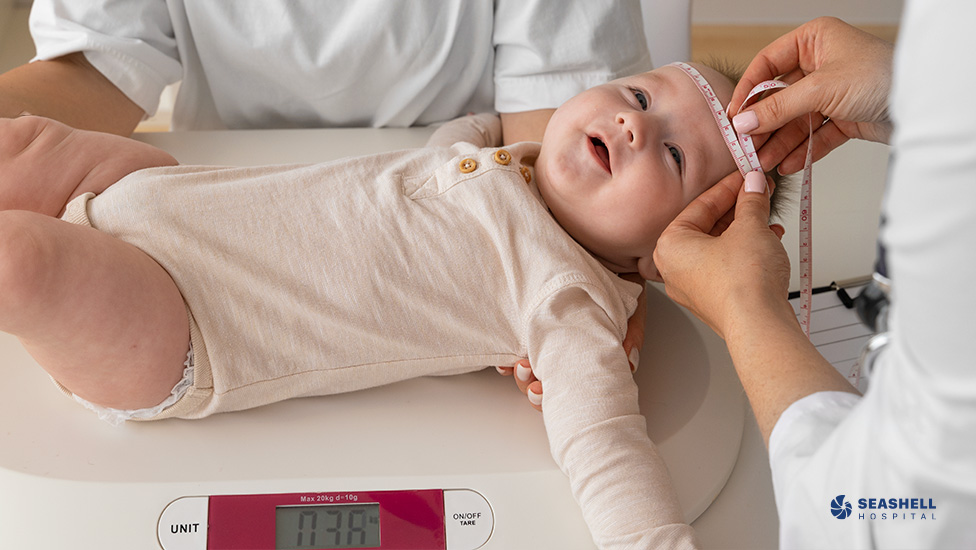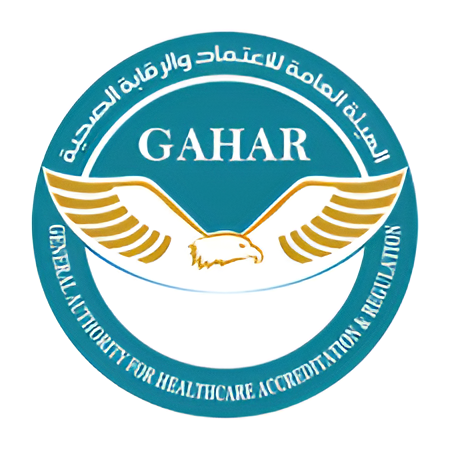 May 22, 2025
May 22, 2025
Newborns: their Growth Development Stages
The early childhood stage, especially for newborns, is one of the most important phases in a person’s life. Understanding this period is crucial for parents, as the baby undergoes significant changes and noticeable transformations in a short time.
Here, we’ll look at different aspects of newborn development and provide insights into medical care to ensure the health and safety of these little ones.
Physical Growth of Newborns
Physical growth from birth to two years is rapid and substantial.
Weight:
Newborns typically weigh between 2.5 to 4 kilograms at birth. By the fifth month, a healthy baby’s weight usually doubles. By the end of the first year, their weight typically triples.
Height:
Normal length at birth ranges from 45 to 55 cm. During the first year, babies can grow an additional 25 to 30 cm.
Teeth:
Teeth usually start to appear between six and eight months, with the first tooth emerging around this time.
It’s important to note that each child has their own pace of growth.
Nervous System Development in Newborns
The nervous system development is complex and continues throughout childhood and into adolescence.
At birth, a baby’s brain weighs about a quarter of an adult’s brain. In the first year, the brain grows about 1.7 grams each day. The brainstem is fully developed at birth, with significant growth in the part responsible for movement.
During the first year, the brain and cerebellum grow, and the brain’s folds develop to their full extent by the seventh month. This enables basic functions like breathing and digestion, and the development of motor skills, sensory skills, language, and social abilities.
Motor Skills Development in Newborns
Motor skills develop significantly from birth.
By six months, most babies can lift their heads and lie on their stomachs. Neck muscles strengthen, improving head control, and fine motor skills begin to develop.
By the first year, babies can sit with or without support, use their hands for balance, and crawl using hands and knees.
Between one and two years, many children start walking with support and eventually independently. Fine motor skills improve, allowing them to grasp small objects and climb furniture.
Sensory Development in Newborns
Sensory development includes the enhancement of sensory abilities and the baby’s response to their environment.
Vision:
Vision is blurry at first. Babies respond to bright lights and colorful objects. By four months, they see more clearly and recognize people. By the end of the first year, they can see fine details and interact with colorful images.
Hearing:
From the first days, babies can hear and recognize their mother’s voice. By three months, they respond to more sounds, recognize their direction, and look toward them. By the first year, they may respond to some commands and music.
Touch:
Touch sensitivity begins in the womb. Newborns respond to gentle touches, temperature changes, and tickling attempts. By three months, they start exploring by touching objects. By six months, they distinguish and interact with objects through touch. By the first year, they recognize objects by touch and sometimes point to painful areas.
Taste:
In the first three months, babies show a preference for sweet tastes, accepting breast milk for its sweetness. Over time, they distinguish between sweet and salty tastes. When introduced to solid foods, they develop preferences for different flavors.
Smell:
Smell develops in the womb. In the early months, babies recognize their mother and milk by smell and are bothered by strong odors. By six months, they use smell to decide on foods. By the first year, they can distinguish a variety of smells.
Normal Sleep Patterns in Newborns
Newborns sleep about 16 to 19 hours daily in the first two weeks, gradually reducing. From four months to 11 months, they sleep 12 to 15 hours daily, with two naps during the day. By the first to second year, they sleep 11 to 14 hours daily.
These numbers are estimates; some babies may need more or less sleep.
Health Care for Newborns
Here are some tips and guidelines for newborn health care:
Nutrition:
Breastfeeding is preferred in the first months, as breast milk contains essential nutrients and boosts the immune system.
Most newborns need 8 to 12 feedings daily. If breastfeeding isn’t possible, use infant formula as advised by a doctor, usually requiring fewer feedings than breastfeeding.
Sleep:
It’s best for babies to sleep on their backs to reduce the risk of sudden infant death syndrome (SIDS).
Hygiene:
Maintaining hygiene is essential as newborns are more susceptible to infections. Bathe the baby about twice a week.
Vaccinations and Doctor Visits:
Follow the recommended vaccination schedule and visit the pediatrician regularly to monitor the baby’s health and development.
Caring for a newborn is a unique phase requiring patience, care, and lots of love. Each baby has a unique personality and development path. While the early weeks and months can be challenging, including sleepless nights and frequent diaper changes, don’t forget to take care of yourself. Celebrate the small victories and enjoy the precious moments of your baby’s early days with your partner.
